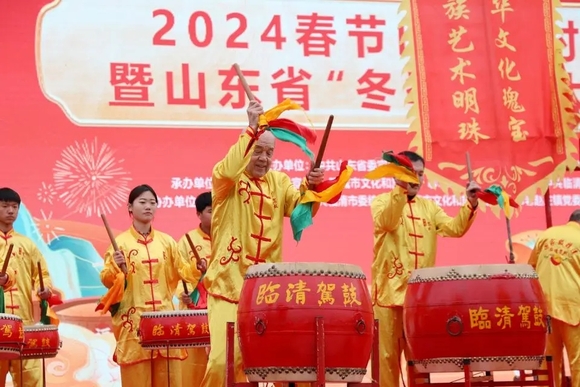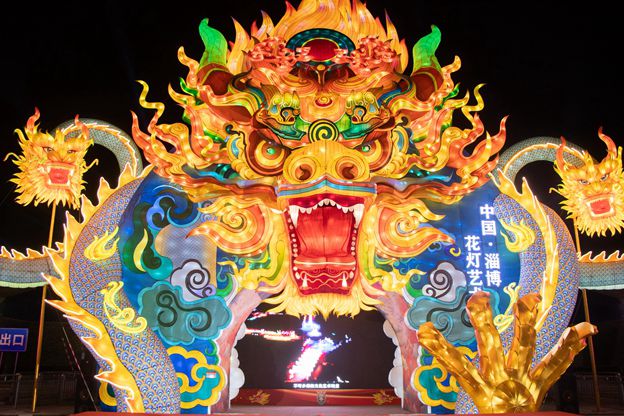Qingdao achieves impressive growth with record GDP
By ZHANG LINWAN | (China Daily)| Updated : 2021-07-14
Print PrintOfficials say economic strides come from boosts in industries, rural revitalization, improved living standards and environmental protection
Qingdao in East China's Shandong province has developed into a towering coastal metropolis, with its GDP hitting 1.24 trillion yuan ($191.74 billion) in 2020, local officials said.
The figure represents a 70 percent jump from 2012, placing Qingdao among the country's top 15 city economies, according to the city government.
"While expanding our economic aggregate, we focused on the efficiency and quality of economic growth," said Sun Jie, deputy director of the Qingdao development and reform commission.
Qingdao has made remarkable strides in all areas including industries, rural development, environmental protection and people's well-being, Sun added.
Last year, the added value of its service sector totaled 761.36 billion yuan, accounting for 61.4 percent of the city's GDP.
The government's general public budget revenue was 125.4 billion yuan in 2020, nearly double that of 2012. Local fixed asset investment rose at an average annual rate of 13.4 percent from 2012 to 2020.
Based on its rich marine resources and advantages in scientific research, Qingdao has built eight provincial technological innovation centers and 19 national-level international scientific and technological cooperation bases.
Of them, the Pilot National Lab for Marine Science and Technology (Qingdao), put into operation in 2015, is China's first national marine laboratory.
According to the Qingdao bureau of science and technology, the city has been committed to an innovation-driven development philosophy aimed at building an international innovation city.
In 2016, central authorities approved the establishment of Shandong Peninsula National Innovation Demonstration Zone, which includes the Qingdao National High-tech Industrial Development Zone. In 2019, Qingdao was selected as a national pilot area for innovative applications of artificial intelligence.
"We ramped up efforts to cultivate high-tech industries and replace old growth drivers with new ones," Sun said.
Statistics show Qingdao had 4,396 high-tech enterprises by 2020, up some sevenfold from 2012.
The number of unicorns-startups worth more than $1 billion-in the city reached 10, ranking fifth in the country. In addition, 28 local high-tech enterprises went public during the 13th Five-Year Plan (2016-20).
Qingdao also strived to support rural revitalization and promote the integrated development of rural and urban areas.
It has developed some 2,467-square-kilometer high-standard farmland, and its annual grain output has remained at around 3 million metric tons for several years.
To improve infrastructure and public services, rural roads totaling 12,000 kilometers and 1,057 rural community service centers have been constructed.
Local authorities have also installed an array of advanced facilities to ensure local people have universal access to clean water and natural gas.
You Cuiyu, director of Qingdao's bureau of agriculture and rural affairs, said the income gap between rural and urban areas has further narrowed and villagers now can enjoy higher living standards.
Last year, the per capita disposable income of Qingdao's rural residents was 23,656 yuan, up 4.8 percent year-on-year and ranking first in the province.
Since 2019, Qingdao has been listed as a national logistics center.
Qingdao Port, comprising 120 productive berths, is the fifth-largest port in the world in terms of annual cargo throughout.
Qingdao Jiaodong International Airport will be put into operation next month. Its opening will make Qingdao the fourth city on the Chinese mainland with two international air hubs, following Shanghai, Beijing and Chengdu.
Meanwhile, Qilu China Railway Express, the freight train service between Shandong province and Europe, has launched 34 routes to 20 countries so far.
Qingdao is seeking to further expand opening-up and international cooperation based on its strengths in transportation and connectivity, officials said.
In 2019, the State Council approved the construction plan for the China-Shanghai Cooperation Organization Economic and Trade Cooperation Demonstration Zone in Qingdao.
The zone further enhances Qingdao as a vital player in economic and trade cooperation between Asia and Europe and boosted China's ties with SCO members, according to the city government.
In 2020, the value of the city's imports and exports rose by 8.2 percent year-on-year to 640.7 billion yuan. Nearly one-third of the city's foreign trade business was conducted with countries and regions involved in the Belt and Road Initiative.
Qingdao also hosted a slew of key international events including the 2020 East Asia Maritime Cooperation Platform Qingdao Forum and the second Conference of the Global Health Forum of Boao Forum for Asia.
It has become a "reception room" for China's exchanges and communication with the world, Sun said.
In terms of green development, Qingdao was honored as a highly competitive city in ecology and conservation in 2019.
The number of days with good air quality accounted for 88.5 percent of all days last year, 8.2 percentage points higher than that of 2015.
The marine environment also continued to improve, with 98.8 percent of the city's coastal water assessed as Class II (suitable for aquaculture and swimming) or better, according to the Qingdao bureau of ecology and environment.
zhanglinwan@chinadaily.com.cn

 2024 Shandong Rural Cultural and Tourism Festival
2024 Shandong Rural Cultural and Tourism Festival  Celebrate Spring Festival in Zibo
Celebrate Spring Festival in Zibo  Share your views on 2024 China's govt work report
Share your views on 2024 China's govt work report